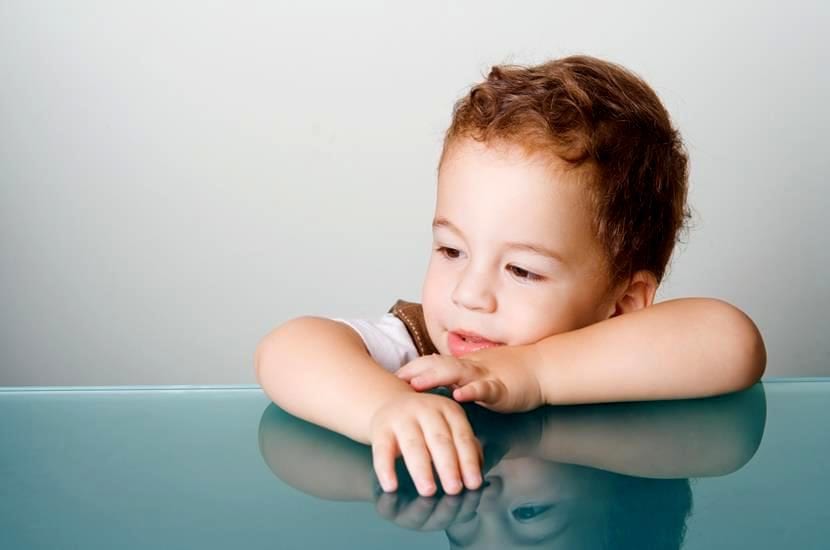
ADHD is not your enemy and neither is your child. Your child is a good being every day, so stop looking to blame. If you have a child with ADHD, there are some rules you should follow to make parenting much easier than you can imagine right now.
Most parents are good parents. But if your son or daughter has attention deficit disorder with or without hyperactivity, being a 'good' parent may not be enough. To ensure that your child is happy and well-educated now and in the future (and to create a calm home environment), you will need to be a good parent.
Fortunately, it is easier than you think to go from being a 'good' to a 'great' father (or mother). All you need is a few small changes to your strategies for parenting a child with ADHD and the way you interact with your child. Do not punish your child with ADHD, or his impulsive behavior ... Discover some rules for good parenting in children with ADHD.
Accept that your child (like all children in the world) is also imperfect
It is not easy to accept that there is something that is not 'normal' in your child. But a child who senses his parents' resentment (and their pessimism about prospects) is unlikely to develop the self-esteem and spirit of power that he will need to become a happy, well-mannered adult.
For a child to feel accepted and supported, he needs to feel that his parents trust his abilities. Once parents learn to look at the gifts of ADHD - such as exceptional energy, creativity, and incredible interpersonal skills - they will be able to see all the brilliance that exists within their child. Many parents see great possibilities for the future in their children with ADHD thanks to all the extra energy they have that other calmer children cannot enjoy.
Love your child unconditionally and treat him as if he were already the person you would like him to be. This will help you become that person.

Don't believe all the 'bad news' about your child
It's no fun hearing school professionals describe your child as 'slow', 'unmoved' or 'impulsive'. But don't let negative comments dissuade you from doing everything in your power to advocate for their educational needs. After all, children with ADHD can be successful if they get the help they need.
While it is true that your child's mind works differently, the reality is that he has the ability to learn and succeed just like any other child. Just as a diabetic needs insulin and an asthmatic child needs help to breathe, a child with ADHD needs a regulated learning environment appropriate to their needs.
Make sure you know the difference between discipline and punishment
How many times have you complained to friends or family (or even a therapist) about your child's behavior? You've yelled, talked, threatened, given time off, brought toys, canceled outings, bribed, begged ... and nothing seems to work with your child's behavior! But you must change your perspective, because so many changes in consequences can confuse any child. One of the most effective approaches to discipline is positive feedback.

Many parents use the terms 'discipline' and 'punishment' as if they were synonymous, but they are actually very different terms. Discipline is always preferable because it teaches the child to behave. It includes an explanation of inappropriate behavior and reorientation to acceptable behavior (along with positive reinforcement each time the child makes a good choice of behavior). Punishment, on the contrary, uses fear and shame to force the child to behave.
Punishment is used from time to time in many families. However, it should never involve physical or verbal abuse and should be used only as a last resort. For example, if your child continues to pull the cat's tail despite being repeated and taught not to do it, punishment (out of respect) may be a good option.
Often, the best way to discipline a child with ADHD is through a simple behavior modification program: set age-appropriate, achievable goals and then systematically reward each small achievement until the behavior becomes a habit. By rewarding positive behavior (rather than punishing negative behavior), you are helping your child feel successful and increasing their motivation to do the right thing next time.
Never punish a child for behavior they cannot control
Imagine that you tell your child to make the bed and then find him minutes later lying on it playing cards. What you have to do? Yell at him and tell him how lazy he is? Nothing about that. In many cases, a child with ADHD does not obey not because it is challenging, but simply because it distracts from the task at hand (in this case, making the bed). Distraction is a common ADHD symptom and something you may be unable to control. When a child is repeatedly punished for behavior that he cannot control, you will be frustrating him and his desire to please will evaporate as he will think that it is not worth the effort and also the relationship between parents and children may be resented.

The best approach in situations like this might be to simply remind your child what to do and even help him if necessary. Punishment makes sense if it is being very clear that your child is being defiant, for example if he outright refuses to make the bed. But it will always be appropriate to give it a try.
What are the most important rules in your home regarding education and parenting with your child with ADHD?